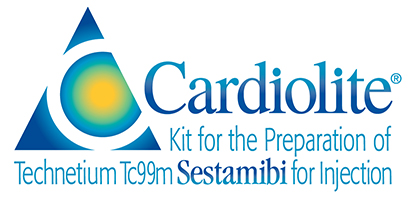- PATIENTS WELCOME
- UNDERSTANDING HEART DISEASE
Risk Factors for Heart Disease - ABOUT MYOCARDIAL PERFUSION IMAGING WITH CARDIOLITE®
- ADDITIONAL RESOURCES

Frequently Asked Questions
What is a stress test?1
A stress test is used by doctors to diagnose heart disease. If your doctor wants you to have a stress test, you may have symptoms of heart disease or certain risk factors for it. Not everyone who has a stress test has heart disease. Your test results can help your doctor determine if you have heart disease or if you may be at risk for a heart attack.
What is coronary artery disease?2
Coronary artery disease (CAD) is a type of heart disease. CAD occurs when the arteries that carry blood to the heart become clogged with fatty deposits (plaque). These buildups can clog the vessels, reducing the amount of blood that flows to your heart.When that happens, more serious problems can develop including:
- Chest pain, or angina
- Heart attack
- Heart failure
- Changes in your heart rhythm
Although there is no cure for CAD, there are many treatments available to help you. And there are steps you can take to lower your risk and help improve the health of your heart and your blood vessels.
What are the risk factors for coronary artery
disease?2
Common risk factors that doctors look for are:
- Age and gender
- Family history of heart disease
- Diabetes
- High levels of LDL (“bad”) cholesterol
- Low levels of HDL (“good”) cholesterol
- High blood pressure
- Smoking
- Lack of exercise
- Being overweight
- Poor diet
- Drinking too much alcohol
- Stress
The more of these risk factors you have, the greater are your chances of developing heart disease. A stress test with Cardiolite® can help your doctor determine if this is a problem you may face.
What is Cardiolite®?3
Cardiolite® (Kit for the Preparation of Technetium Tc99m Sestamibi for Injection) is an imaging agent used in stress tests to see how well blood is flowing to and through your heart. If you have a stress test with Cardiolite® your doctor will inject you with a small amount of radioactive Cardiolite® and use a special camera to take pictures of your heart. Please discuss any concerns regarding this procedure with your doctor.
Why does my doctor want me to have this test?4
Your doctor suspects you may have heart disease and wants to confirm it.
Your doctor may suspect coronary artery disease if you have chest pressure or other symptoms. Having certain risk factors such as high blood pressure or family history of heart disease could also increase your chance of having coronary artery disease. It’s important to be tested, because some people with heart disease feel no symptoms at all.
Your doctor already knows you have heart disease and wants to monitor your condition.
If you have already been diagnosed with heart disease, your doctor may ask for a stress test to:
- Look for any heart damage you may have
- Track the progress of your condition and assess your risk for problems in the future
- Determine how well your treatment is working
- https://www.heart.org/en/health-topics/heart-attack/diagnosing-a-heart-attack/myocardial-perfusion-imaging-mpi-test.
Accessed 02/07/2020. - https://www.nhlbi.nih.gov/health-topics/coronary-heart-disease Accessed 04/13/2020.
- Cardiolite® [package insert]. N. Billerica, MA: Lantheus Medical Imaging.
- https://www.mayoclinic.org/tests-procedures/nuclear-stress-test/about/pac-20385231?p=1 Accessed 02/07/2020.


